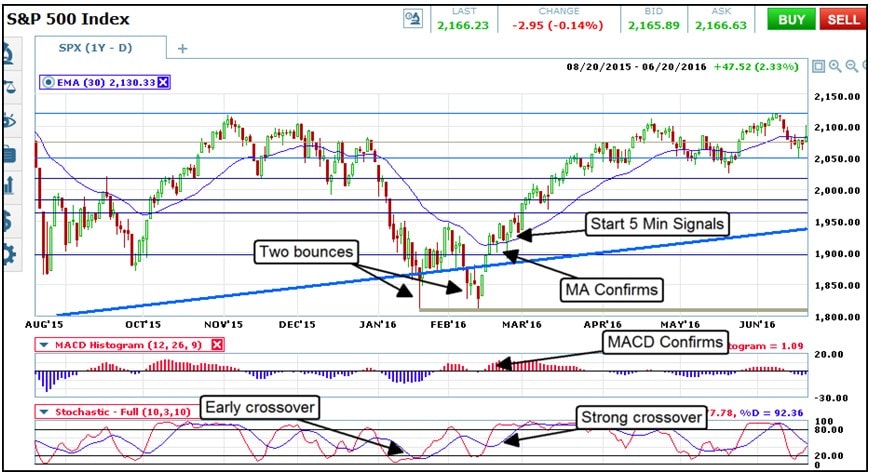Does Better Trading Mean Less Trading?
The other day, when talking with one of my trading buddies, we posted this question. Does better trading mean less trading? The answers we came up were a little surprising, perhaps even counter-intuitive. You’d think that the better you get the more you may trade but the reality is that no, this may not be the case. You may, in fact, find yourself trading less or more as you get better, it just depends on your style. What is more important than making a lot of trades, and something a newbie will have a harder time with is the win rate. Profitability is about win rates, not the number of trades you make. If you make 100 trades a day and only win half of them you are losing money. If you make a 100 trades in a month and win 75% of them you are well on your way to living a life free from going to work.
Trading Better Does Not Mean Trading More
Newbies and less experienced traders often trade too much but that is part of the learning curve, and why we recommend a lot of demo trading. They may have come into the game thinking that to be a trader means trading every day or trading all day. They may find themselves grinding out it out day after day simply to keep their account at break-even levels. They may also find themselves taking signals that are weak, reversing their analysis at the drop of a hat and making the kinds of mistakes they told themselves they would never make. It is all too easy to let emotions take control and push you into throwing good money after bad or to risk a little profit in an attempt to make a lot of profit.
Better Binary Options Trading, Less Equals More
An experienced trader may trade a lot, every day or even all day. The difference is in how they are trading and what they are doing. The first thing to understand is that a pro trader has overcome, or nearly overcome, the emotions of trading. I can admit that emotions still affect me, when I win I like it and when I lose I hate it. The key is that a pro will not let the emotion prod them into making another trade. The best way to overcome the emotions is to use a rule-based approach. You need money management rules to protect your account, and you need strategy rules to reduce your risk. Using the rules will help keep you out of making bad trades, and yes, this may mean trading less.
The Secret Behind Trading Psychology: Know Thyself!
Another thing that may keep a better trader from trading more is patience. You’ve got your rules, now you have to have to patience to follow them. This may mean waiting a long time for the next trade which obviously means making fewer trades. A newbie, and once again I can admit to doing this more than once, may become impatient and talk themselves into seeing a signal that just isn’t there. So yes, in this instance a better trader may be trading less. Another idea along these lines is that not all signals are good, and not all signals are strong. A patient, experienced, trader who knows the value of a strong signal versus a regular, weak or random signal will trade less because those signals come less frequently but will have a much better win rate.
Patience Is A Virtue, Learn To Avoid Psychological Traps
Of course, there are times when a better trader may make way more trades than a newbie. One of these is when you use multiple time frame analysis. Multiple Time Frame Analysis, MTF, means using a longer time frame chart such as daily or hourly to pinpoint a signal and then switching to a shorter time frame chart for entries. The patient trader may wait days, weeks or even months for a strong signal to appear on the longer time frame. On a daily chart this may result in a move that lasts days, weeks or months so when you move down to the shorter time frame ANY trend following entry is a good entry and potential winner. In this instance, you may trade less waiting for the first signal and then trade MORE once that signal is fired. Take for instance a strong stochastic signal as pictured below. This signal resulted in a move that lasted for 2 months, 2 months. During those two months, there were dozens, if not hundreds or even thousands of shorter-term intraday trend following signals with a high probability of success. Yes, the trader may have to wait for the first signal, that may take time, but once it fires its game on.

My Final Thoughts
The bottom line is that it really doesn’t matter how much you trade, or how often, or what time frames you use so long as the trades you make are GOOD trades. It doesn’t matter how many trades you make, so long as you make more good trades than bad trades. The difference between a less experienced trader and a more experienced better trader is the nature of the signals they take. More experienced traders do not let emotions dictate when they trade, they have the patience to wait for a good signal and the experience to utilize those signals once they come. In the end, the better trader may have to wait longer between strong signals, but once those signals they get to trade more and will have a much higher win rate, and much better profitability. Another article that may help is this, Connect The Dots To Become A True Binary Options Trader